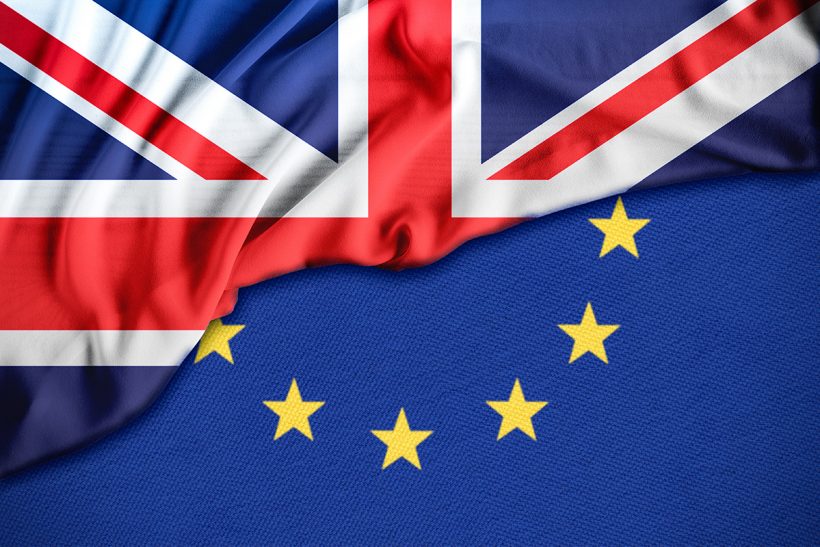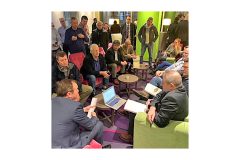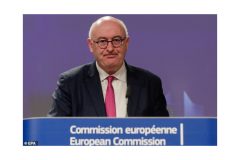Brexit withdrawal deal threatens N Ireland landings
Tariffs and extra paperwork due to Irish Sea border
Northern Ireland fishermen could be disadvantaged by the Brexit withdrawal deal, because they would be treated as being from a third country when landing in Northern Ireland, and therefore be subject to tariffs, reports Tim Oliver
Northern Ireland MP Jim Shannon highlighted this scenario during a Commons debate on the withdrawal bill just before Christmas.
Quoting a briefing from the Anglo-North Irish FPO, he said that Brexit offers Northern Ireland’s fishing industry ‘once in a lifetime opportunities’ and will end ‘the inequality, hypocrisy and disrespect of Europe’s CFP, which has damaged the fishing industry in Co Down’.
But he then presented a scenario in which a UK-registered, Northern Ireland-owned trawler sails from one of the Co Down ports of Portavogie, Ardglass or Kilkeel. It fishes for a few days, complying with the rules of the UK’s new fisheries policy, and its catch is recorded against UK quotas.
It then returns to one of the Co Down ports and sells its catch there, in the UK.
“However,” said Jim Shannon, “one interpretation of the latest Northern Ireland Protocol – in the withdrawal agreement – is that if this UK-registered trawler wants to land its catch in Northern Ireland, it will be treated as though it is a trawler from a third country, and will be required to submit a series of documents that, although they are not new, are not currently required.”
He said there would be tariffs on the fish, which meant the withdrawal agreement, indirectly or directly, disadvantages fishermen in Co Down.
Quoting again from the ANIFPO briefing document, he said: “We accept that in the absence of a free trade deal with the EU, these documents may well be required for exports to the EU, but they should not be needed if the catch is destined for our most important markets in England, Scotland and Wales – all within the United Kingdom.
“The Conservative Party manifesto stated: ‘We will ensure that Northern Ireland’s businesses and producers enjoy unfettered access to the rest of the UK.’ Urgent clarification is needed that the travesty outlined above will not happen.”
Jim Shannon told MPs: “We need clarification that the fishermen will not face the tariffs or the bureaucracy that has been suggested. It is so important that we do that.”
He also expressed his ‘dismay’ at the 15% cut in the Irish Sea (area 7) prawn quota agreed at the December Council, which was taking place during the debate. “It will impact greatly on those in my constituency, who know that the prawn quota is so important for our fishing sector, our economy, and the jobs it creates,” he told MPs.
He added that the withdrawal agreement meant that ‘not only will the EU be able to reduce our prawn quota for our trawlermen and for those who work in the Irish Sea, but it will be able to continue to do that’.
He said: “We are not just disadvantaged today, but come 31 January, when all the rest of the United Kingdom leaves – Scotland, Wales and England – with free trade, we in Northern Ireland will be disadvantaged. The rules that Brussels has imposed today on the fishermen of Portavogie, Ardglass and Kilkeel in Northern Ireland will be reinforced doubly come 31 January.” He asked the government to look again at the situation.
Jim Shannon said that because of the border down the Irish Sea following Brexit, Northern Ireland will be subject to the possibility of a new EU VAT regime, while the rest of the UK would not be.
“What has been put forward disadvantages us in Northern Ireland greatly in relation to that possibility, and also other tax possibilities, with the real focus changing from Westminster towards the EU and towards Dublin,” he said.
The situation has arisen because the EU refused to accept a customs and regulatory border in Ireland, resulting in the withdrawal deal including a regulatory and customs border down the Irish Sea.
But details of just how the regime will operate in practice will be worked out during the forthcoming EU-UK trade negotiations that the government aims to complete by the end of 2020.
- The Northern Ireland Democratic Unionist Party (DUP) tabled a new clause during the withdrawal bill debate last week requiring ministers, in negotiating the UK’s future relationship with the EU, to have as an objective ‘preserving, protecting and promoting’ the future of the Northern Ireland fishing industry. The clause also aims to avoid an increase in paperwork being required for the Northern Ireland fishing industry after the UK leaves the EU.






